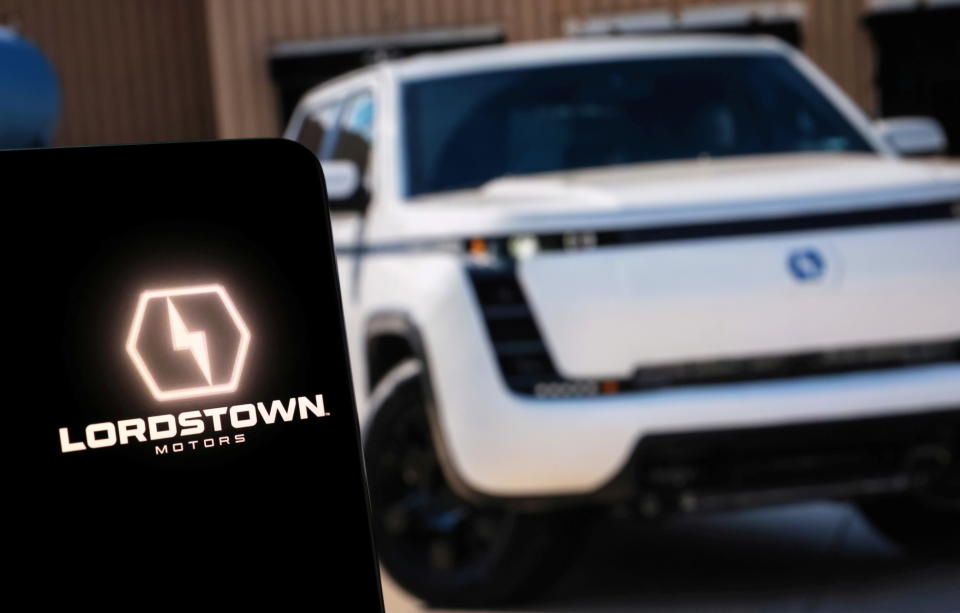Lordstown Motors’ (RIDE) Chapter 11 bankruptcy filing highlights the rise and fall of EV startups whose stocks went to the moon and back during the pandemic.
Lordstown was a Wall Street favorite during the pandemic after unveiling its Endurance truck at the White House next to former President Donald Trump. The startup went public via a special purpose acquisition company (SPAC) in 2020, and its share price soon skyrocketed to $435.
Shares of the Ohio-based electric truck developer were down 25% on Tuesday afternoon, hovering around $2 each — a 99% drop from their peak in February 2021.
Like some other EV pandemic darlings, Lordstown has been plagued by short seller pressure, investigations, and now tighter monetary policy as the era of easy money is gone. Making matters worse, cash-intensive EV startups have been forced to sell more shares in the public markets over the last year to raise money, lowering their stock prices further.
“It’s not a surprise to me that some of the froth is going out of this area,” Matt Maley, chief market strategist at Miller Tabak, told Yahoo Finance. “There’s less money sloshing around… and it’s going into AI right now.”
Last month, Lordstown announced a reverse stock split in order to increase the Nasdaq’s minimum per share listing requirement of $1.00.
Phoenix-based Nikola’s (NKLA) stock has met a similar fate, with shares falling below $1 in May.
The startup was flying high in 2020 after going public via a SPAC. A scathing short seller report tanked the stock in November of that year. Nikola’s founder and chairman, Trevor Milton, eventually stepped down and the C-suite went through a reshuffle.
Despite its challenges, earlier this year, the startup celebrated the milestone of 100 Class 8 Nikola Tre hydrogen fuel cell electric vehicles (FCEVs) sold.
However, compared to established EV giant Tesla (TSLA), production targets for startups have been tough to meet amid interrupted supply chains, high labor costs, and inflated prices for raw materials.
Tesla’s (TSLA) Q4 production rate was 4,779 units per day.
By comparison, newcomer California-based Lucid (LCID) was only producing vehicles at a rate of about 38 units per day, “which is nowhere near achieving mass production,” Garrett Nelson, VP and senior equity analyst at CFRA Research, told Yahoo Finance in January.
The company expects to deliver between 10,000 and 14,000 vehicles in 2023, compared to Wall Street expectations of roughly 20,000 to 22,000.
Short sellers have piled on to names like Lucid, which reached a high of $55 in November 2021. The stock’s short interest currently sits at 25% of the float.
EV makers are coming up with strategies to weather the economic storm ahead as the economy slows and demand concerns grow.
California-based Rivian (RIVN) is turning to experiential store spaces to sell more of its vehicles. Rivian delivered nearly 30,000 vehicles since the start of production in September 2021 and produced nearly 35,000.
As Yahoo Finance’s senior auto reporter Pras Subramanian notes, “Rivian’s target for 50,000 deliveries this year alone is a big one — especially for trucks that start around $73,000.”
There is “a lot of uncertainty regarding who will survive,” the economic challenges ahead, senior equity analyst at CFRA Research Garrett Nelson told Yahoo Finance on Tuesday.
Nelson added “we think the companies which are more favorably positioned are those who are currently producing and selling vehicles… those with a sizable liquidity position, and ideally the backing of major investors.”
Ines is a senior business reporter for Yahoo Finance. Follow her on Twitter at @ines_ferre
Click here for the latest stock market news and in-depth analysis, including events that move stocks
Read the latest financial and business news from Yahoo Finance


